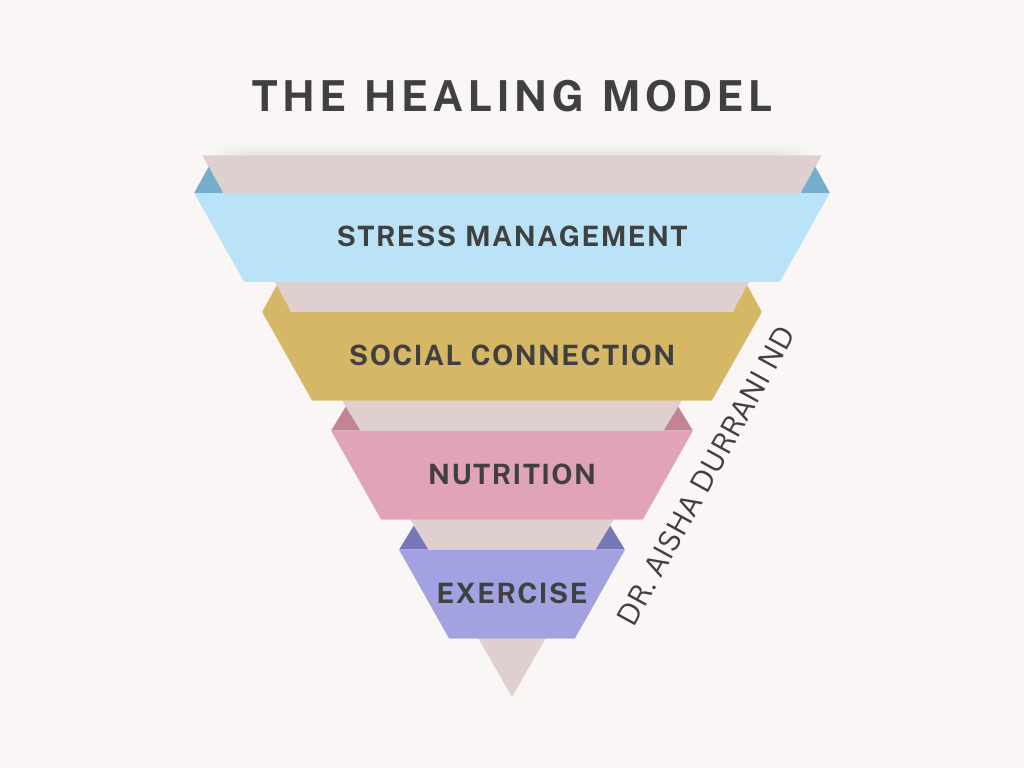Stress management & emotional regulation
1. Stress Management / Nervous System Regulation
Chronic stress dysregulates cortisol, increases inflammation, disrupts sleep, and makes it harder for the body to BE in HEALING mode.
This is why stress/safety often comes first: if the nervous system is dysregulated, other interventions don’t “stick” as well.
2. Social Connection
Oxytocin and safe connection literally calm the nervous system, reducing cortisol and inflammation.
Social connection is both a buffer against stress and a direct healer.
3. Diet / Nutrition
Nutrition builds the "raw materials," but without stress/safety, digestion and absorption are impaired.
4. Exercise / Movement
Moving your body regularly helps you live longer, keeps your heart and metabolism healthy, lifts mood, eases anxiety, and makes your brain more flexible and resilient
But in states of severe stress or poor nutrition, exercise can backfire (raising cortisol) - especially in females.
This is why exercise usually comes after nutrition and regulation — it amplifies healing once the basics are in place.
A Naturopathic Doctor can provide stress regulating tools that aren’t necessarily therapy.
Naturopathic doctors take a whole-body and root-cause approach. They often focus on the physical, biochemical, and lifestyle contributors to stress. Common ways they support stress management include:
Lifestyle and nutrition: Recommending diet changes, meal planning, or specific nutrients that support the nervous system (e.g., B vitamins, magnesium, omega-3s).
Herbal medicine & supplements: Using adaptogens (like ashwagandha, rhodiola, or holy basil) or calming herbs (like chamomile or passionflower) to regulate stress response.
Sleep optimization: Assessing sleep quality, addressing insomnia, and supporting circadian rhythm.
Hormone & lab testing: Checking for imbalances in cortisol, thyroid, or sex hormones that can worsen stress and burnout.
Mind-body practices: Teaching breathing exercises, mindfulness, yoga, or meditation.
Acupuncture (if trained): To regulate the nervous system and reduce stress.
Essentially, NDs look at the physiological and lifestyle factors affecting stress resilience and tailor a plan to restore balance.

